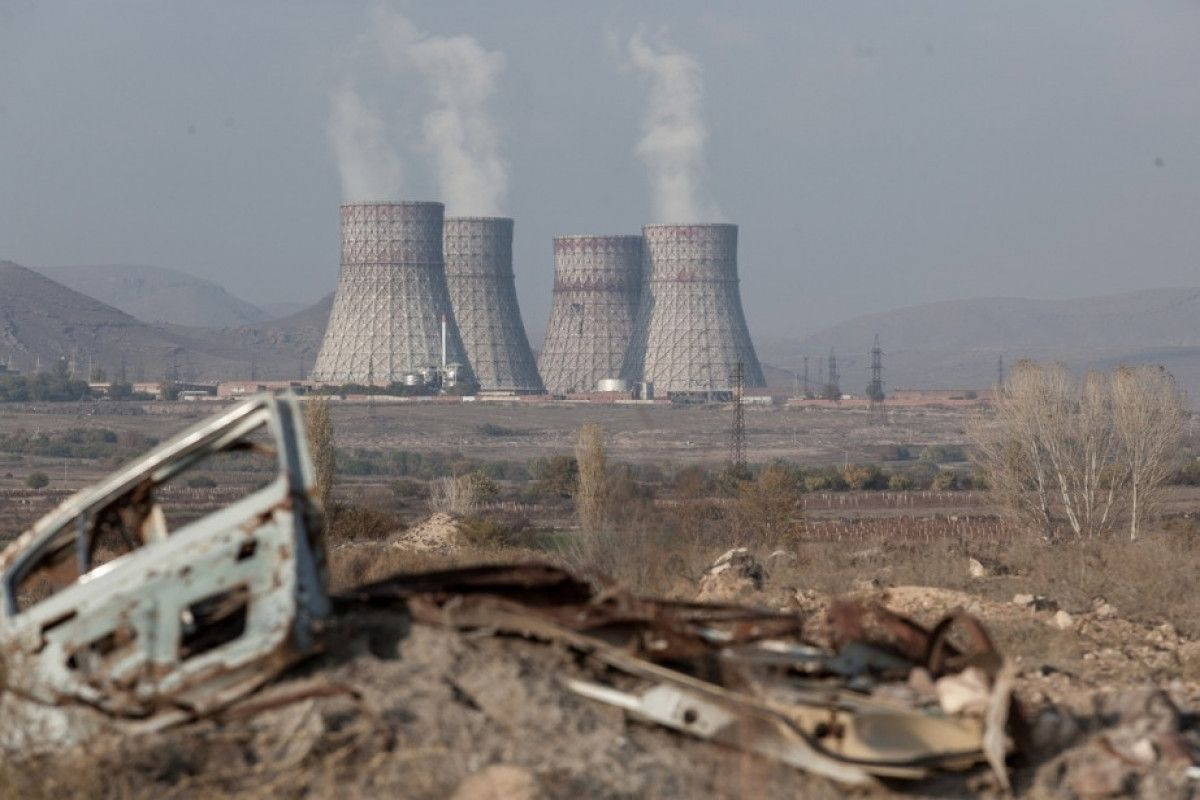Caucasus’ Chernobyl in waiting: America can’t look away from Metsamor

By Peter Tase | AzerNEWS
In a world beset by escalating global tensions and nuclear uncertainty—from the battlefields of Ukraine to the threat matrix in the Middle East—the United States has recently stepped up to show leadership and reasserted its commitment to global nuclear safety. But there’s one glaring danger Washington has yet to address: the Metsamor Nuclear Power Plant in Armenia.
Located 22 miles from the Turkish border and within an active seismic zone, Metsamor is one of the world’s oldest and most dangerous nuclear plants. Constructed in the 1970s, it uses a Soviet-era reactor that lacks a containment vessel, which is a basic feature in modern nuclear safety design. It was temporarily shut down after a devastating 6.8 magnitude earthquake shook Armenia in 1988, but was inexplicably reopened in the mid-1990s. Today, it quietly continues to operate, posing a ticking time bomb at the heart of the South Caucasus.
An accident at Metsamor wouldn’t just endanger Armenia, it could destabilize the entire region. The South Caucasus is a critical artery for East-West energy transit, connecting the Caspian basin to European markets through pipelines that bypass Russia and Iran. Any nuclear fallout here would ripple far beyond the immediate area, affecting NATO allies like Turkey and Georgia, jeopardizing European energy security and sending shockwaves through global markets.
The threat is not merely technical. Metsamor is also a geopolitical liability. Maintained with assistance from Russia’s Rosatom State Atomic Energy Corporation, the plant is a tool of Kremlin leverage in the region. In a time when the United States is working tirelessly to counter Russian influence, allowing Armenia to remain tethered to Moscow’s nuclear umbilical cord undermines those efforts.
Even more concerning is Armenia’s deepening alignment with Iran. Armenia has long served as a quiet yet significant economic proxy for Tehran. Back in 2012, Reuters reported that Armenian banks were complicit in helping Iran sidestep international sanctions by obfuscating payments and deceiving Western intelligence agencies. In 2019, the U.S. Treasury sanctioned Armenia-based Flight Travel LLC for facilitating operations tied to Mahan Air, an airline linked to Iran’s Islamic Revolutionary Guard Corps.
The Armenia-Iran relationship continues to strengthen. The two nations inked an agreement in 2022 to expand the North-South Transit Corridor through northern Iran, marking another potential sanctions workaround. And just last month, Iranian civilians reportedly sought refuge in Armenia, underscoring the country’s role as a safe haven for the Islamic Republic’s economic and logistical interests.
Compounding these concerns is a persistent and deeply troubling undercurrent of antisemitism in Armenian society, an issue that should factor into Washington’s assessment of its strategic partnerships. In January, the Anti-Defamation League released findings from its latest global index on antisemitism, covering more than 100 countries. It revealed that 57% of Armenians agree with negative stereotypes about Jews and harbor elevated levels of antisemitic attitudes. To put that in perspective, only 49% of respondents in Iran expressed similar views.
This is not just about attitudes. It represents a toxic ideological undercurrent that contradicts American values and raises red flags about Armenia’s suitability as a responsible regional actor, especially one operating a dangerous nuclear facility with the potential to destabilize an entire region.
If the United States is serious about nuclear safety, nonproliferation and confronting malign actors, then it must take a proactive stance on Metsamor. The plant’s continued operation not only represents a looming environmental catastrophe, but it also serves as a nexus of strategic vulnerabilities.
Washington has shown courage in fostering a rules-based international order. Addressing Metsamor should be the next step in that same vein of principled leadership. Whether by working through the U.N. nuclear watchdog International Atomic Energy Agency, offering financial and technical incentives for decommissioning or coordinating with NATO and regional partners, the time to act is now.
The dangers of Metsamor are not theoretical. They are immediate, multifaceted and growing. If America wants to prevent the next nuclear crisis before it erupts, it cannot afford to look away.
The views and opinions expressed by guest columnists in their op-eds may differ from and do not necessarily reflect the views of the editorial staff.
Here we are to serve you with news right now. It does not cost much, but worth your attention.
Choose to support open, independent, quality journalism and subscribe on a monthly basis.
By subscribing to our online newspaper, you can have full digital access to all news, analysis, and much more.
You can also follow AzerNEWS on Twitter @AzerNewsAz or Facebook @AzerNewsNewspaper
Thank you!
